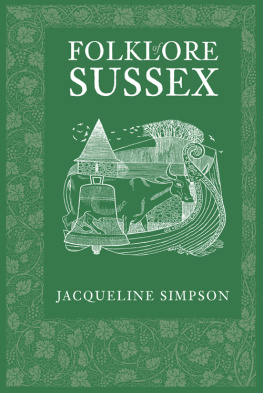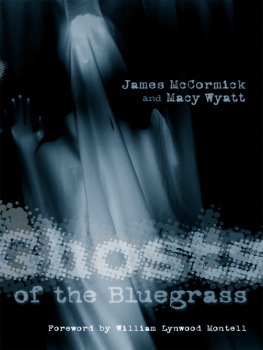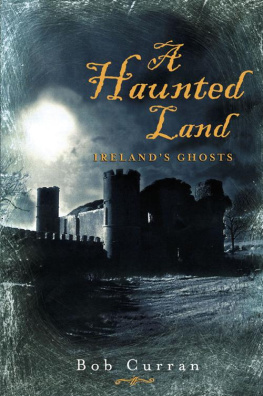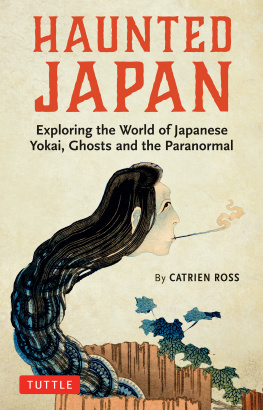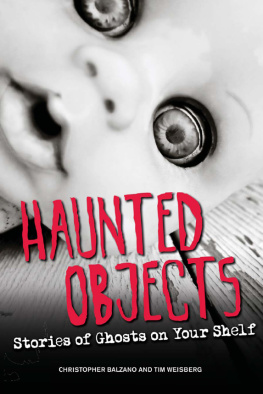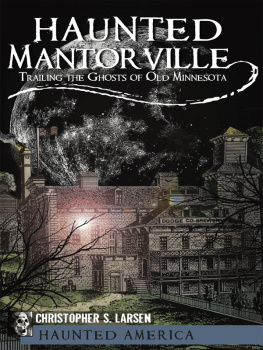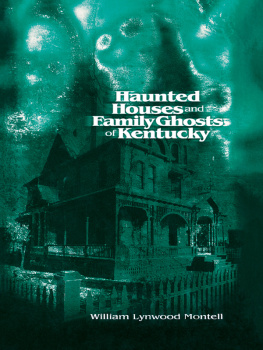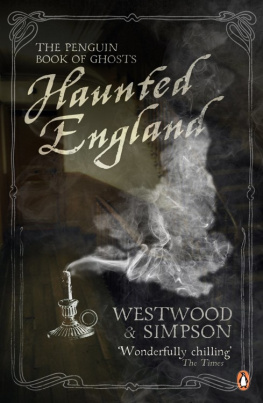The Penguin Book of Ghosts
Jennifer Westwood and
Jacqueline Simpson
Edited by Sophia Kingshill
ALLEN LANE
an imprint of
PENGUIN BOOKS
ALLEN LANE
Published by the Penguin Group
Penguin Books Ltd, 80 Strand, London WC2R 0RL , England
Penguin Group (USA) Inc., 375 Hudson Street, New York, New York 10014, USA
Penguin Group (Canada), 90 Eglinton Avenue East, Suite 700, Toronto, Ontario, Canada M4P 2Y3
(a division of Pearson Penguin Canada Inc.)
Penguin Ireland, 25 St Stephens Green, Dublin 2, Ireland (a division of Penguin Books Ltd)
Penguin Group (Australia), 250 Camberwell Road, Camberwell, Victoria 3124, Australia
(a division of Pearson Australia Group Pty Ltd)
Penguin Books India Pvt Ltd, 11 Community Centre, Panchsheel Park, New Delhi 110 017, India
Penguin Group (NZ), 67 Apollo Drive, Rosedale, North Shore 0632, New Zealand
(a division of Pearson New Zealand Ltd)
Penguin Books (South Africa) (Pty) Ltd, 24 Sturdee Avenue, Rosebank, Johannesburg 2196, South Africa
Penguin Books Ltd, Registered Offices: 80 Strand, London WC2R 0RL , England
www.penguin.com
The Lore of the Land first published 2005
Published in paperback 2006
This selection of stories taken from The Lore of the Land published 2008
1
Copyright Jennifer Westwood and Jacqueline Simpson, 2005, 2008
Endpapers copyright Charlie Gilhooley, 2008
The moral right of the authors has been asserted
All rights reserved.
Without limiting the rights under copyright reserved above, no part of this
publication may be reproduced, stored in or introduced into a retrieval system,
or transmitted, in any form or by any means (electronic, mechanical, photocopying,
recording or otherwise), without the prior written permission of both the
copyright owner and the above publisher of this book
EDITORIAL DIRECTOR: Georgina Laycock
EDITORIAL MANAGER: Ellie Smith
COPY-EDITOR: Sophia Kingshill
PROOFREADER: Pat Rush
INDEXER: Caroline Sheard
CARTOGRAPHY: Darren Bennett
DESIGN: Lisa Simmonds
PRODUCTION: Amanda Gordon
COVER: Coralie Bickford-Smith
978-0-14-192074-0
To Sue Clifford of Common Ground and her co-founder
Angela King, who opened paths for the rest of us.
Contents
Introduction
A clergyman sleeping in an old house awoke in the middle of the night. No candles were lit, but there was a glimmer in the centre of the room which suddenly increased to a bright flame. To his amazement the man saw a beautiful boy clothed in white, who remained staring at him for some minutes, then glided away towards the chimney and disappeared, leaving the room in total darkness. [ See ]
The haunted house (or inn, or wood, or road) is a staple of folklore, and people might have heard one or two such stories relating to places they know, but remain unaware of just how many local tales there are throughout England. This book offers a representative sample, but it must be stressed that there are plenty more. Readers may be surprised to see that a tale they had thought belonged to one place is found elsewhere: this is an international phenomenon, and a number of motifs recur in many different countries.
Folktales and legends are in constant slow movement, like icebergs. It is a modern folklorists business to pursue the trail as it passes vertically down the ages or horizontally across borders, to see where a tale has come from and where it is going, and thus perhaps to get a glimpse of why people wanted to tell this particular story of their particular place.
Two or three storytellers may have learnt a legend and repeated it orally, in subtly different forms. From here the tale may have passed into written form; so circulated, it may return into oral tradition, sometimes attached to a new place. Other stories may have arrived from abroad and begun their British life in books before becoming part of the supposed indigenous tradition.
Such things are legitimate variation, but there is plenty in print which is not. Writers may embroider or make sense of a story, to fit it into their notion of what a folktale should be, and it can be hard for later readers to tell where the authentic legend ends and a poets licence begins. We have therefore been careful here to include the oldest sources available, and have generally preferred to quote direct rather than summarize or modernize.
Ghost stories are particularly liable to transmutation. A good story may become attached to more than one historical (or mythical) figure, and certain themes lend themselves irresistibly to ideas of haunting. Any disappointed dead lover may be thought of as unable to forsake the scenes of their passion, any miser as impelled to guard their hidden wealth or direct their chosen heirs to the hoard. Murder victims may seek vengeance, and murderers, once dead, are also likely to return in continued menace or in vain repentance.
In death as in life, the rich and powerful are prominent. An unpopular landlord may remain notorious for long after he has ceased materially to oppress his tenants, taking the reins of one of Englands many phantom coaches with its team of fire-breathing or headless horses or even, in one surprising instance, elephants [ see ].
Birds (flying and shrieking) are obvious casting for unearthly roles, but they are not the only creatures with a weird reputation. Dogs, particularly when black and shaggy, are enduring characters of legend, whether demonic like the devastating manifestation at bungay, Suffolk, or, like Shuck [ see rolls of linen and trusses of straw may also be assumed by shape-shifters.
Where a body is buried may be of great significance. As late as 1823 suicides were not buried in consecrated ground, making it likely that they would be restless in their unhallowed graves, and even a churchyard burial is no guarantee of quiet lying. If someone asks to be buried in a particular place or even position and the request is ignored, their spirit may be as uncomfortable as someone sleeping in a strange bed.
Skulls are known to be particularly obstinate about their chosen home, and the Victorian clich of Screaming Skulls was coined for this phenomenon, disturbing to many country houses. Skulls on their own lead one to think of a body without a head the widely travelled headless horseman or the Silent Woman (so called because to some misogynist writers the only way to keep a woman quiet is to cut off her head) who carries hers beneath her arm. Such haunts are today often explained as caused by actual decapitation, but there are far more historical ghosts than met their end this way [ see Sir Thomas Boleyn, ] and clearly headlessness is merely a shorthand way of describing a ghost.
Haunts can be family affairs, with regular appearances to many generations. Occasionally the spirits are accepted, like visiting cousins, and places laid for them at table, but more often they are unlucky omens, like the Radiant Boy of knebworth house, Hertfordshire. Warnings of approaching death can however be acts of kindness, as in the case of the Duchess of Mazarine who returned to assure her friend that there was indeed an afterlife as she would soon find out for herself [ see ].
How to lay a ghost is a problem that has kept many clergymen busy down the centuries. Exorcisms are acts requiring courage, expertise and determination (and often a lot of candles), and up to the last a malevolent spirit can cause injury [ see for instance ].
The living sometimes make use of legend for their own ends. Fraudulent haunts have included the famous case of the cock lane ].
Not all ghosts come with a story attached: there are places where local writers list a whole parade of spectres such as chanting monks, galloping horsemen (with or without their heads), Roman legionaries, Cavaliers, White Ladies, and so forth, with little or no background. While we have mentioned one or two villages with a claim to be the most haunted in their county [ see for instance ], on the whole for something to be included here it has to have some narrative content.


